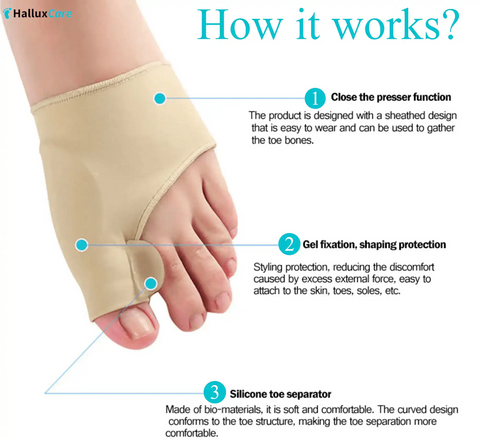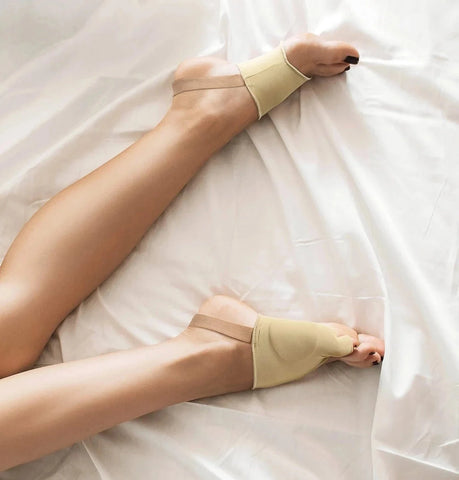Is Bunion Surgery Always the Answer? A Redditor's Honest Journey Through Pain, Weight, and Recovery
Last Updated: Aug 2025 | Written by: Dr. Emily Hartman, DPM — Board-Certified Podiatrist
If you're dealing with bunion pain and contemplating surgery, you're not alone. Many people wrestle with the decision of whether to go under the knife or first explore less invasive bunion pain relief treatments. In this article, we take a medically informed deep dive into a real Redditor’s reflective journey after bunion surgery. Their story highlights post-op complications, the impact of weight gain, and the crucial question: Was surgery even necessary?
Keywords: bunion pain relief, bunion correction, bunion surgery recovery, non-surgical bunion treatment
The Reddit Story: A Real-Life Bunion Surgery Experience
A Reddit user recently shared their candid experience after undergoing bunion surgery on their left foot. Their story offers valuable insight for anyone considering surgical correction or struggling with chronic bunion discomfort.
What Happened?
- They had a large bunion that became increasingly painful over three years.
- Surgery was chosen in hopes of lasting relief.
- 1.5 years post-op, they still experienced persistent pain.
- A minor revision surgery (hardware removal and Akin osteotomy) followed.
- Notably, the onset of severe pain coincided with a 50-pound weight gain.
Key Takeaways from Their Experience
- Weight and Foot Pain Go Hand in Hand: The user realized their worsening bunion pain aligned with rapid weight gain. According to the American Orthopaedic Foot & Ankle Society (AOFAS), increased body weight significantly elevates pressure on the forefoot, intensifying bunion symptoms.
- Surgery Isn’t Always a Cure-All: Even after surgery, the Redditor experienced lingering discomfort. Per the Mayo Clinic, bunion surgery doesn’t guarantee complete pain relief, and recurrence rates can range from 10% to 30% depending on the procedure and post-op care.
- Recovery Requires Patience and Precision: The user stressed the need to be “very, very careful” during recovery. Overexertion too early can cause setbacks—a sentiment echoed by the American Podiatric Medical Association (APMA), which emphasizes the importance of following post-op protocols strictly.
- Non-Surgical Relief May Be the First Step: This journey raises an important consideration: could conservative measures like weight management and orthotics have prevented surgery altogether?
Key Takeaway Summary
- Weight gain can aggravate bunion pain significantly.
- Bunion surgery doesn’t guarantee full relief and may require revision.
- Recovery is slower than expected and needs careful adherence to medical advice.
- Conservative treatments like sleeves and orthotics may prevent the need for surgery.
4.9 ⭐⭐⭐⭐⭐ ( 1843 reviews )
Should You Consider Bunion Surgery?
Before jumping to a surgical solution, ask yourself:
- Have I exhausted conservative treatments? According to the Cleveland Clinic, many bunion sufferers find relief through custom orthotics, bunion sleeves, and lifestyle modifications.
- Is my bunion pain limiting my mobility or quality of life? If pain disrupts basic activities like walking or sleeping, surgery could be appropriate.
- Am I prepared for the recovery timeline? Full recovery can take 6 to 12 months depending on the procedure, per Johns Hopkins Medicine.
Non-Invasive Alternatives Worth Trying
Backed by podiatric recommendations, these conservative options may offer significant relief:
- Orthopedic bunion correctors and sleeves
- Weight loss to reduce load on forefoot joints
- Anti-inflammatory topicals like castor oil or essential oils
- Wearing wide-toe box, supportive shoes
- Custom orthotics or insoles prescribed by a podiatrist
Final Thoughts: Surgery or Sleeves?
The Reddit user’s journey serves as a powerful cautionary tale. Surgery isn’t always the definitive cure we hope for — especially when factors like weight gain and recovery missteps come into play. For many, non-invasive treatments such as orthopedic sleeves, proper footwear, and weight management can delay or even prevent the need for surgery.
What About You?
Have you tried bunion sleeves or undergone surgery? What worked for you? Share your journey in the comments below — your insights could help someone else make a more informed decision.
Recommended Products from HalluxCare
If you're looking for relief from bunion pain, consider using the Orthopedic Bunion Pain Relief & Correction Sleeve, which provides support and helps to alleviate discomfort.
For additional protection, the Tailor's Bunion Bunionette Pain Relief Protection Sleeves are designed for comfort and correction of bunionette (little toe) issues.
To nourish and soothe the skin around bunions, try the Jamaica Black Castor Oil Soothing Oil. It offers anti-inflammatory benefits and can also promote hair and scalp health.
Frequently Asked Questions (FAQs)
Q: How do I know if my bunion pain warrants surgery?
A: If conservative treatments have failed and bunion pain interferes with your daily activities or footwear choices, consult a podiatrist or orthopedic surgeon. Imaging (X-rays) will often help determine the severity and treatment path.
Q: Can bunions go away without surgery?
A: No, bunions do not reverse on their own. However, non-surgical treatments can slow progression and significantly reduce pain, especially when caught early.
Q: How long does it take to fully recover from bunion surgery?
A: Recovery varies by procedure but typically ranges from 6 weeks of non-weight-bearing to up to 12 months for complete healing. Full mobility and shoe comfort may take time to return.
Q: Are bunion sleeves really effective?
A: Yes, when used consistently, bunion sleeves can help realign the toe, relieve pressure, and reduce inflammation. They are particularly effective for early-to-moderate bunions and for preventing worsening.
Q: Can weight loss really help bunion pain?
A: Absolutely. Even modest weight loss can reduce pressure on the forefoot, easing bunion pain and slowing deformity progression.
Disclaimers & Disclosures
This article is for informational purposes only and does not constitute medical advice. Always consult with a licensed healthcare provider before starting or stopping any treatment. The author may be affiliated with or receive compensation from companies linked within this article, including HalluxCare.




